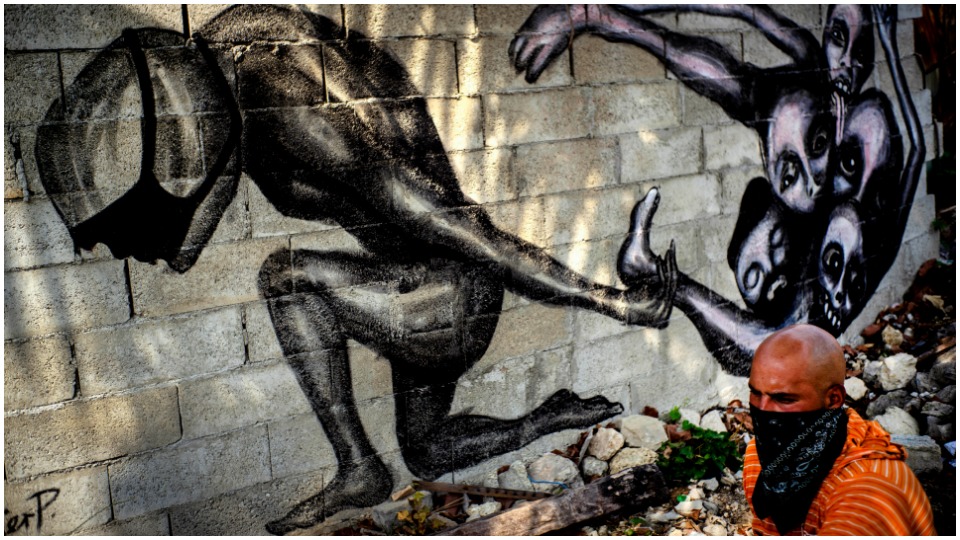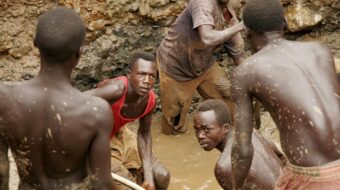
We know that for almost 60 years the U.S. government has blockaded Cuba and, in the process, has damaged Cuba’s economy and threatened the health and safety of the Cuban people. We know that the Cuban people are now defending themselves against the COVID-19 virus and know, too, that COVID-19 often causes death.
We know that, as the COVID-19 crisis extends, calls have mounted within the United States and beyond for the U.S. government to lift economic sanctions against Cuba, Iran, and Venezuela. The United Nations Secretary-General and the head of the World Health Organization added their voices.
It was no surprise that on March 30, a plane with masks, protective gear, and much more donated by China’s Jack Ma Foundation wasn’t allowed to land at Havana’s airport. The Foundation had contracted for a U.S. company to transport the material and, on that account, rules of the U.S. blockade came into play. The Ma Foundation had already delivered COVID-19 aid material to 50 other countries.
Then, on April 13, Cuban officials announced that, because of the U.S. blockade, they could no longer buy ventilators from Imtmedical A.G in Switzerland or from Acutronic Company in Switzerland and Germany. The so-called Cuban Democracy Act of 1992 prohibits foreign affiliates of U.S. companies from exporting goods to Cuba.
The two companies fell victim to the law because in 2018 they had been purchased by Vyaire Medical Inc., based in Illinois. On Feb. 26, 2019, Vyaire Medical informed MediCuba, the Cuban company charged with importing medical supplies, that deliveries of ventilators from the companies were canceled. Again, it must not have been a surprise.
Vyaire Medical came into existence in 2016 with funds provided by the medical supply producer Becton Dickinson and hedge fund operator Apax Partners. Through its Vyaire subsidiary, Becton Dickinson is now one of the seven largest ventilator producers in the world.
The unavailability of ventilators is no trivial matter. They are essential in providing medical intensive care. Ventilators constitute last-resort treatment for the respiratory failure that may accompany infection with COVID-19. Presumably, Cuba delayed publicizing problems with acquiring ventilators until now in order to send a message. The message heard here is that U.S. denial of access to life-saving equipment in the midst of a deadly pandemic is cruel beyond words.
The U.S. government, through its economic blockade, appears to be sending its own message. The U.S. bully is proclaiming its resolve never to compromise, to have no regard for human life—both in order to terrify the victim.
No surprise; this time the U.S. government inflicts terror on the Caribbean island by withholding ventilators. Formerly, it was military invasion, marauding gunmen, bacteriological warfare, assassinations, hotels bombed, and the bombing of an airliner and passengers killed.
Side note: There’s money to be made on U.S. sanctions. The title of Lauren Smith’s Monthly Review Online article appearing on March 10, 2020, reads, “United States Imposed Economic Sanctions: The Big Heist.” Its message is that economic sanctions, imposed now on 39 countries, “serve to justify and conceal theft, through asset freezes and seizures, at a rate only previously accomplished through invasion and occupation.” The New York Federal Reserve Bank “maintains $3.3 trillion in foreign assets.” Hedge funds and other financial schemers prey on such resources and also on the penalties foreign corporations and banks paid for having violated sanctions.
This look at the U.S. economic blockade of Cuba and at economic sanctions at large concludes with a request.
The U.S. Peace Council on April 9 issued an “Open Letter to the Government of the United States and the United Nations” addressed to the President of the United States and Secretary-General of the United Nations. The letter demands that in this time of pandemic “all U.S. and UN sanctions against the targeted nations be lifted, and all U.S. military threats and actions against them be stopped immediately.”
We ask that readers add their names. Click here to sign the Open Letter












Comments